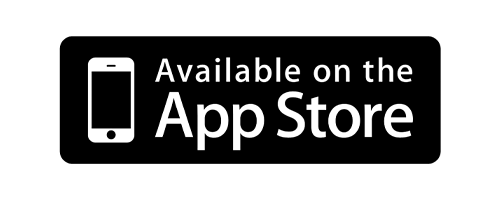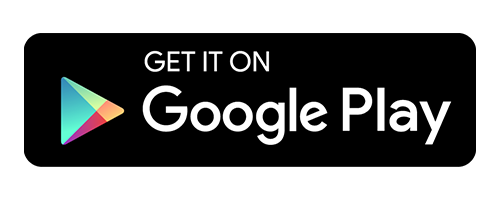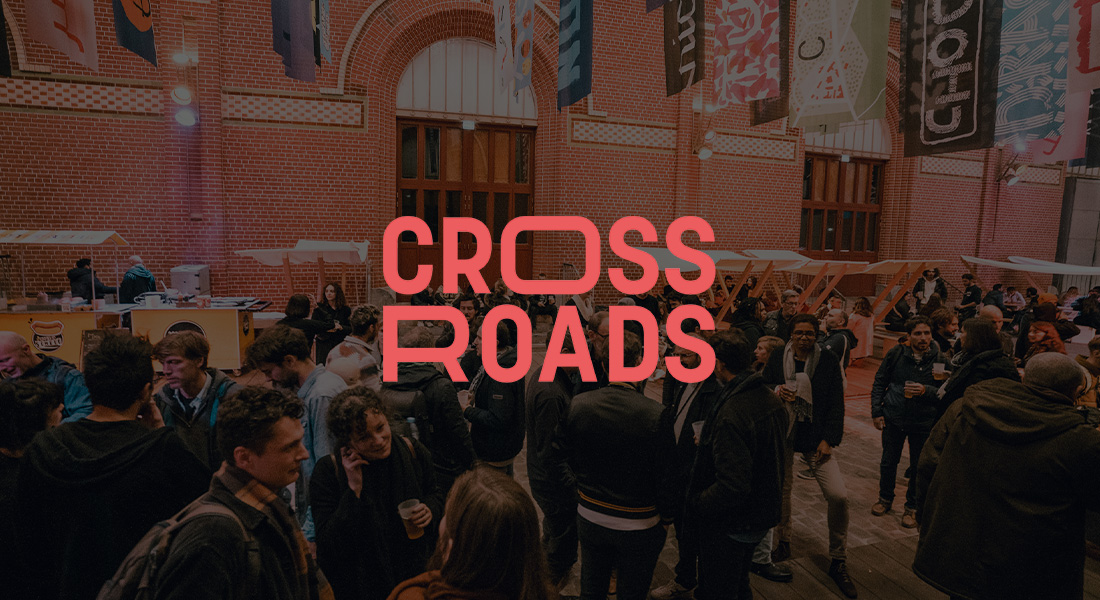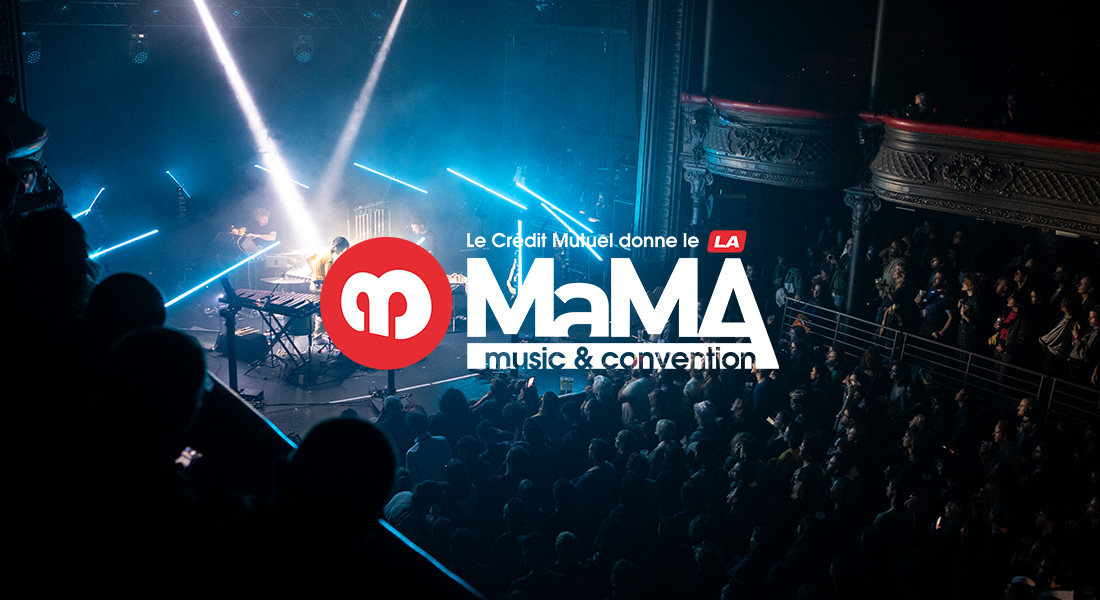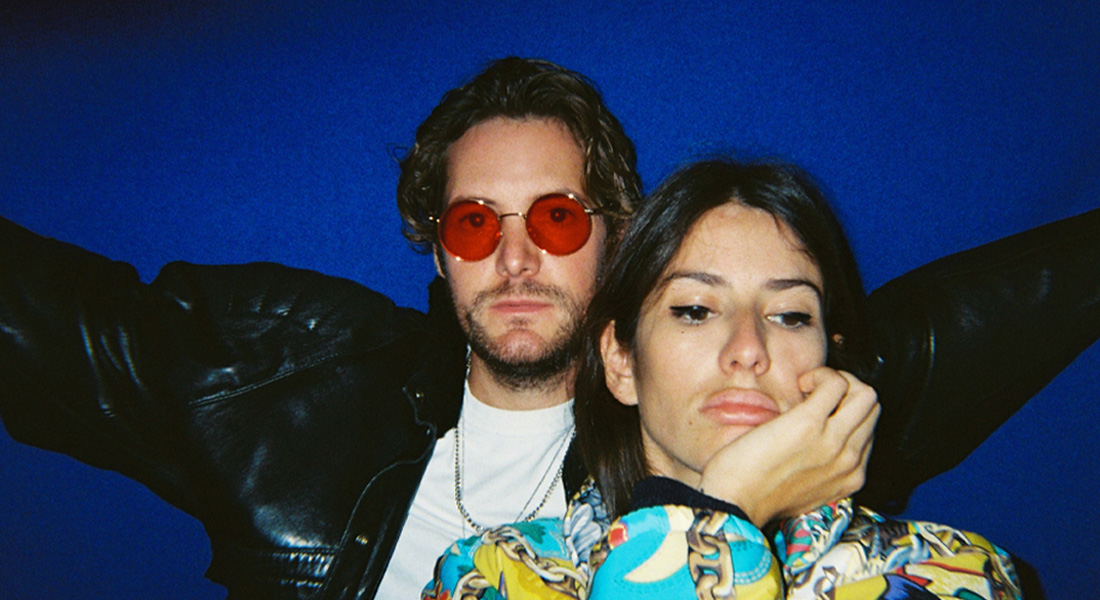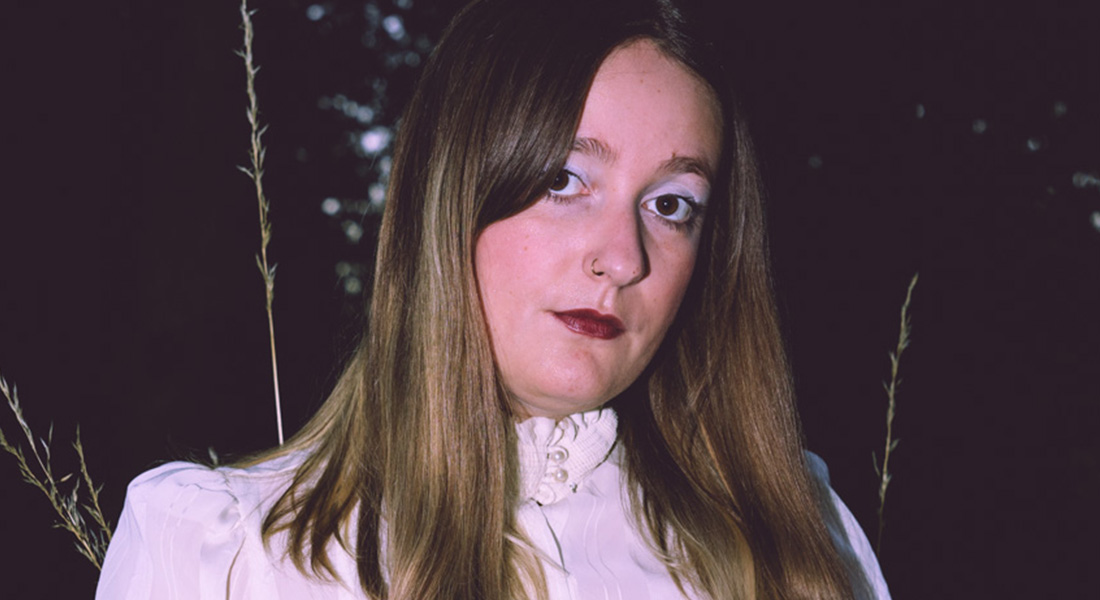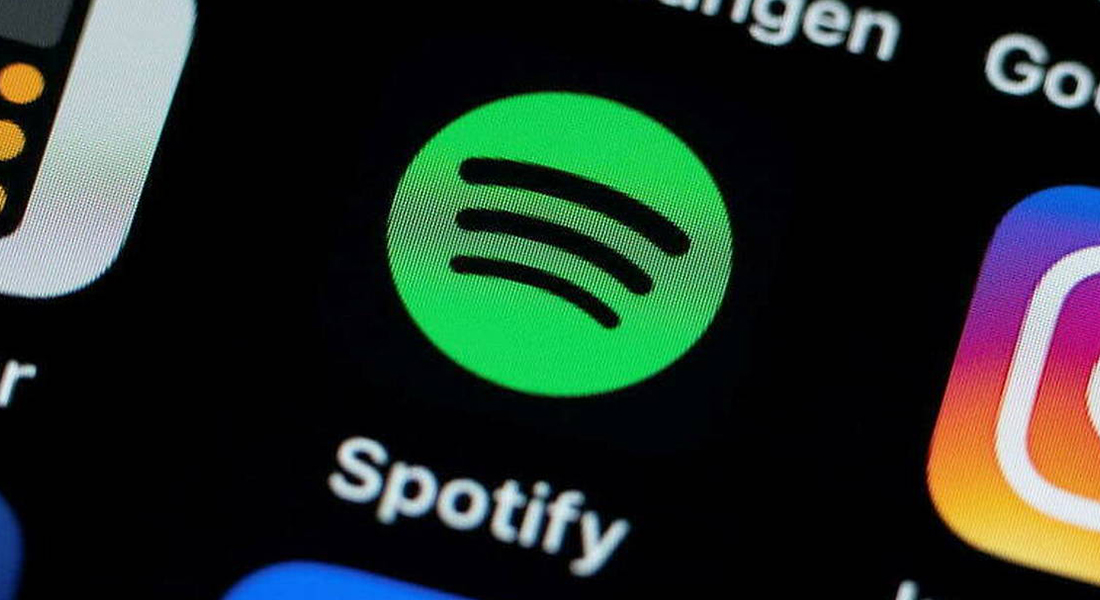The music industry seems difficult to navigate for many people and especially many emerging artists, and digital distribution is certainly the least known part of the music business. It is indeed difficult to know what are the processes at hand when a song goes live on streaming platforms, or when a song hits the cover of our favorite playlist on Spotify, Deezer or Apple Music. Well, we were as curious as you, so we investigated in order to answer your questions.
Among all the digital music distributors that we could have contacted to flesh out the second part of this music report, IDOL was the first one to come to mind. We appreciated the work they do to defend the interests of 300 indie labels and artists in several countries in the world. We therefore asked Sylvain Morton, the head of distribution of IDOL’s French headquarters, in order to find out more about the role of a digital distributor and its influence in the life of a label and an artist.
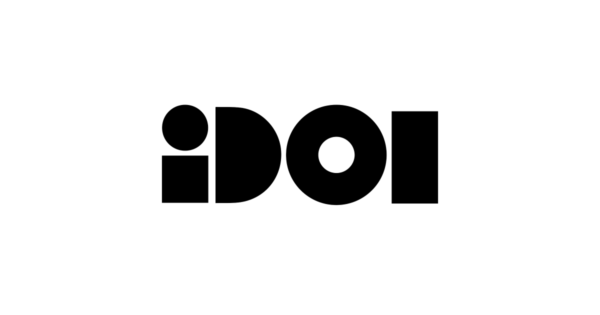
– IDOL’s logo
hauméa : Hi Sylvain and thank you for answering our questions today ! First of all, could you quickly tell us what are the main activities of a digital music distributor like IDOL ?
IDOL: If we summarize it in the most basic way possible, the job of a music distributor is to get in touch with music stores – aka digital streaming platforms and physical stores. And if we refer only to the activity of a digital distributor and of IDOL, we have 3 types of missions. Its primary mission is to deliver the labels’ catalog to the streaming platforms and ensure that the catalog is available on as many platforms as possible.
Then comes everything related to what we call label relations. It has to do with how we support, as a distributor, a label in its music release strategy. So we talk to them about timing, planning, we can even help him choose what would be the best first single to release, etc. We talk about the marketing plan with the label and we suggest ideas to them.
And finally, our last mission is to use key informations as selling points – like an artist’s profile – to promote a release to the platforms. We have a dedicated trade marketing team for that. Their job is to promote our upcoming music releases, meaning that they go talk to the platforms, tell them that this is the next projects that are about to release, and how we think it can fit into such playlist, for example. So that’s what an IDOL-type music distributor does.
hauméa : And how is IDOL different from aggregators like Spinnup, TuneCore, Ditto, Distrokid … just to name a few ?
IDOL: Basically, from the missions I just described, aggregators like Spinnup or TuneCore limit themselves to delivering the music catalog to the platforms. They don’t work out relationships with labels and there is no such thing as trade marketing amongst their services. So their services are useful for an artist or a label since their catalog is made available everywhere, but it’s up to them to do the rest of the work. While with a distributor like IDOL, we give them access to additional trade marketing, label support and release strategy coaching services.
But let’s not forget that we don’t have the same business models at all. On our end we take a commission on a label’s sales income. These structures however charge what is called a flat fee, let’s say $50 per year, and that’s it. So, basically, if the project “skyrockets” and is signed onto a “DIY distributor” – that’s what we call them – an artist will earn a lot more money than if they were to sign with a distributor like IDOL. And since we are talking about contracts, an artist signed with a major – aka Universal, Warner, Sony Music… editor’s note – will receive much less money than if they were simply distributed. The less services you get access to, the more money you get, but also the more risks you take and the more you have to do by yourself.
Similar to IDOL : Music distribution – part 1 : a lesser known part of the music industry
hauméa : You mention that you work with music labels, but do you ever work with artists directly ?
IDOL : Yes indeed ! I say labels, but I could also say music producer instead of label. For us, we carry the same relationship with a self-produced artist and with a label. We consider that this artist, regardless of the team that surrounds them, will have to take care of some missions that are related to the work of a label and not of a distributor.
We have signed with artists directly, artists like La Femme, Lomepal, Tryo … They are all very different in terms of music genres, but one of the thing that pushed us – or in this case that reassured us when we decided to work with them – is that there was a very professional team around them. These artists have experienced managers around them who understand what they have to do, and what we are going to do for them. They know that we cannot be in charge of the relationship with the artist. Lomepal works with Grand Musique Management for example, which have a very established voice in France. So these are really specific artist profiles. There are plenty of contracts that we refuse to sign when the team around the artist is too small, or structured enough at least.
hauméa : And how is your work different from that of a label ? I want to ask this question because music distribution is not that much of a well-known field, and I know that distribution contracts have been favored lately by independent artists who wish to be independent and not to rely on a label.
IDOL : So what is be interesting for an artist who works with a distributor is that they are totally free to do whatever they wish to do, artistically speaking. But they’re also free to do whatever they want in terms of strategy : they are the ones responsible for setting it up. I mean, they will be able to ask the distributor for advice, but this entrepreneurial side is very interesting, I think, for artists who have been frustrated in the past with a label where they did not feel like they were being listened to. So that is very interesting for them.
And of course there’s the financial part as well, that is to say that there are artists who were signed with a label and who at the time received only 20% of the income they had generated with their music. And when they decide to switch for a distribution model, they can invert that share and earn 80% of the total income instead. So, these are the obvious advantages, but on the downside, there are now lots of missions that the label was in charge of that they now have to take the responsibility for, like the music production part. At the time, it was the labels’ job, but today there are a lot of self-produced artists – even big ones – who decide to sign a licence deal with a label instead.
But beyond that, artists have to know how to coordinate all of their actions, that is to say to send out the “assets” at the right time and to the right people. So they have to know when to send the music video files at the right time of the marketing campaign, to invest at the right time in the marketing campaign too… All of this is clearly what a label is qualified to do and know how to do. So if artists are looking to self-distribute themselves, they must know how to handle that.
And it puts lots of artists at a disadvantage in my opinion because lots of them underestimate that job. They decide to self-produce their music for all the reasons mentioned above, but they did not realize that the project management part is essential. So, we always make sure that there is someone around the artist whose job is project management, but we are not going to do it for them. This is another type of contract which is a co-production license contract, but it is no longer a distribution contract.
hauméa : It’s true that project management is key. This is why some artists look for a manager to do this for them !
IDOL: Absolutely ! But to me, a good manager is to build a team around the artist. The role of a manager is very strategic. This is a very important role for artists. And I would even say that a good manager will find a project manager for their artist. When the teams are very small the manager may handle this job as well, but they have a “business” perspective, a business development strategy for the artist that the project manager is not supposed to have. For me the roles are a little different.
To be read : The work of an artist coach : talking with Maryam, sebjin’s manager & co-founder of Outsiders
hauméa : In your case, you are the head of distribution at IDOL in France : what does the trade marketing team do to promote upcoming releases ?
IDOL : So the distribution team is split up in 3 departments. There is what we call the content management department, or in other words the “supply chain”. They are the ones delivering the catalog to the music platforms. They play a key role, as we try to be as exhaustive as possible in our deliveries, meaning that we try to work with as many platforms as possible. So we are also trying to partner with platforms in smaller territories where income may not be immediate or may be uncertain at first. We really try to be available everywhere in the world.
On top of that, there is a lot of SEO work that comes into play when delivering a catalog. So we spend time educating our labels to flesh out their metadatas as much as possible because this will improve discoverability on music platforms. And it is this team that has the role of optimizing the SEO of our labels by educating them on that matter.
hauméa : May I ask, since metadata is a very common word in the music industry but there are plenty of emerging artists who don’t necessarily know what it is : could you clarify what exactly are metadata ?
IDOL : Metadata are the track’s identification card basically. There is a lot of data associated to a track : the name of the artist, the name of the track itself, but also the name of the composers, of the additional performers… To take an example : if you have written out your metadata correctly, let’s say if you have written in your jazz piece that there is this specific trumpeter playing, and someone is listening to another track where the same trumpeter is playing, the music service on which the track is being listened to may suggest listening to your track afterwards because there is a link between the two tracks. This is where metadata improves discoverability. And that’s exactly what happens in a streaming service’s algorithm.
For example when you are on YouTube and you search for let’s say a “song for a rainy Sunday”, well, depending on how you have filled your metadata, you can rank up in the platform’s SEO and your track has one more chance of being listened to compared to others. So it is very important not to take this exercise lightly. And on top of that, as time goes by, streaming services try to differentiate themselves with lyrics, so if you don’t pay enough attention to your metadata, you’re not going to benefit from the whole discoverability features of streaming services.
hauméa : Thank you for clarifying this !
IDOL : After that, there is what is called label relations. This is another service where our label managers discuss with our labels to support them with their release strategy, aka defining an ideal timing and a marketing plan. We will ask the label what the marketing plan is, what investments are planned, what is the artist’s profile… And after that, either we have enough elements to promote it to the platforms because that we will have enough arguments to market it, or we will ask more questions to the label.
If the label tells us “I think this can stream in the United States” we will ask them why, what kind of data makes them think of that – we work a lot with data. We are going to try to make the label understand that there is a huge competition and that there are tens of thousands of tracks that release every day on Spotify alone, so you really have to come up with impactful arguments. So we are going to ask why is it a priority to develop their artist in a specific territory. Does it come from the artist’s profile ? Does it come from a recent ambition to develop there ? If so, we have to invest and the platforms have to see that there is an investment to come. Because the reality is, there isn’t room for everyone, there are 60,000 songs coming out on Spotify per day, so the curators decide which tracks to put forward based on the artist’s potential. All of this work is done by the label relationship team, and this team works very closely with the trade marketing team.
The trade marketing team is the one that markets the catalog to platforms by pitching them the upcoming releases. So they are the ones who know what the streaming platforms are expecting. The trade marketing team receives the labels’ arguments, and will pitch them to the platforms. And for a lot of people, music distribution comes down to that, but the platform relationship is really one element among lots of others. We build relationships with the platforms over time, and we regularly pitch out tracks with the information we have.
hauméa : And how exactly is this a job that an artist cannot do alone ?
IDOL : So what people may not be aware of is that we are working with a lot of platforms, and in addition, we also pitch locally. We have offices in several countries : in France, Germany, England, the United States and South Africa. And when we pitch, part of it is done locally.
So for the artist alone who wants to pitch their work themselves, and if their ambition is to pitch in a single territory and on three platforms, if they manage to build relationships with the 3 editorial teams of the 3 platforms that are in France for example, they could potentially do this job. But it’s going to be very limited in comparison with what a distributor like us does, since we are in touch daily with a lot more platforms in a lot more territories. It’s mechanical, it’s almost impossible to replicate on a single person’s scale.
And then, after you pitch, you have to build relationships with the editorial teams. The fact that as a distributor we have releases coming every since week, it allows us to build relationships with these platforms. And these are people that we see often, we see them at live shows for example… So building a relationship with a platform when you are a single artist is complicated. For example, we are in touch with NetEase and Tencent, which are Chinese music streaming platforms. If a solo artist wants to have their content available on these platforms and to be featured on their editorial playlists, it is going to be complicated to get this done alone.
hauméa : And also, when it comes to pitching, a lot of artists think – and it’s normal – that in order to get featured on playlists, you can just an email to the curators to pitch your works, but it’s actually a lot more complicated than that.
IDOL : Yes, it is. But there are tools on streaming platforms that allow you to pitch your tracks to these teams. Spotify has a portal for that – Spotify for Artists, editor’s note – but our work is a lot more than just pitching. After pitching, we also send out dedicated newsletters, follow-up emails, we schedule listening sessions… there are plenty of ways to promote a track. Trade marketing is far from being just pitching. Pitching is a part of all the promotional work. A solo artist will be able to pitch their own work, but it will be difficult for them to do more.
hauméa : I know you offer other types of services to your clients, on top of delivering their music to platforms. Can you tell us more about that ?
IDOL: Indeed, absolutely. We offer additional services but we do not offer them to all of our labels and artists. We do so based on their needs and expectations, or even based on the potential of one project.
We can offer digital marketing services for our labels, which means that we can take care of marketing investment campaigns. We also offer community management services, where we support labels in developing their social media accounts and online presence. We can also handle international marketing promotion campaign. For example for artistic projects like La Femme or L’Impératrice, IDOL has participated in their international campaign by helping them to hire press officers in the United States. We can even handle physical distribution thanks to some of our partners – La Femme, L’Impératrice and Lomepal benefit from this type of services for example. But we only offer them when it’s relevant for the label and for us too. We do not offer this to all labels. The idea is to add value to projects that are well structured and who decide to self-produce themselves, so that they can rely on a range of additional services.
hauméa : So, in short, who is IDOL’s offer for ? What kind of labels & artists do you like working ?
IDOL : Well, in terms of music genres, we are quite eclectic. We have indiepop, rock, electro, even hip hop labels for example. We try to work with labels that have a certain understanding of everyone’s role. Artistically, we are not so picky because we do not have an editorial line. However, we try to bring quality work in everything we do. So, in all of the music genres we represent, we try to have labels that we consider relevant.
And when we set up a deal with a label, we will ask them lots of questions about their vision. We try to sign with ambitious labels, who want to develop their artists, who have the ambition to turn them into well-known independent artists. We are looking for this ambition for growth. Most of our labels are professional and have managed to professionalize themselves with emerging artists, which is never an easy thing to do. So we look for this ambition. This is where we get picky.
And we know for a fact that for a partnership to go well between a distributor and a label, there must be this mutual understanding of each other’s roles. So we are demanding of our labels. We are demanding of ourselves. And we’ve been following this strategy from the start. This is what allows us to avoid signing too many deals as well. If we want our service to remain of great quality, we have to work with professional people and we will be able to bring them the added value that they are looking for.
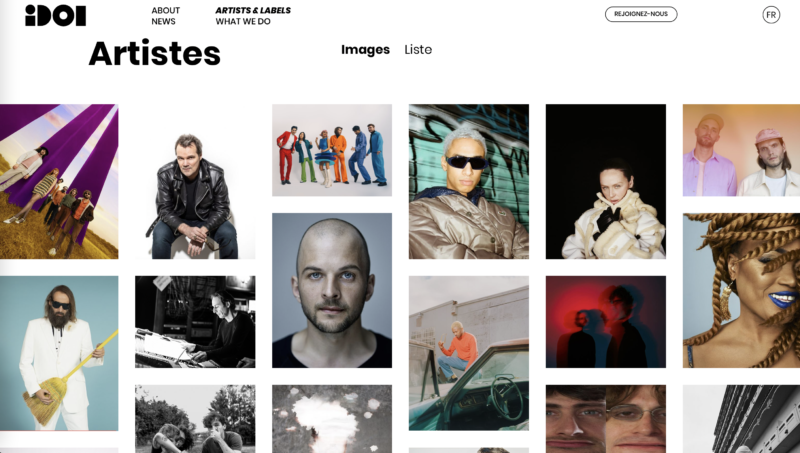
– screenshot of IDOL’s website & their signed artists
hauméa : And so, as a music distributor, if you had to give advice to an artist who wanted to sign a distribution deal, what would you recommend them straight away ?
IDOL: I think that artists – or labels, because to me, an artist is like a label – must not expect the distributor to be the key to their success. A distributor will accelerate a career, will seize opportunities, but it will not make them go famous by itself.
It is necessary that artists who decide to be entrepreneurs – and sometimes it is not even a choice, sometimes there is no label for the artist, I am perfectly aware of that – it is necessary that they develop their image first. That’s very important. It’s important that they develop their image, that they release things, that they try to promote themselves in order to develop a fanbase. There is an huge value in an artist’s fanbase today. So it is necessary that there is a good development dynamic going on around the project so that they can then go see a distributor, and move on to the next step. If an artist has no audience, and they put out stuff that nobody listens to, and then go to a distributor, frankly nothing is going to happen or change. I mea, there will be one exception out of a thousand, but realistically speaking, my advice is to develop your audience as an artist, and if you don’t want to do that, then you have to find a label.
hauméa : But this is a recurring issue that a lot of artists face, growing their audience, and they generally come to the conclusion that they have to find a distributor to get playlisted. What to say to that ?
IDOL : Playlist placement is not going to happen out of nowhere. That’s what I’m trying to say : work has to be done. All of the artists who perform well of platforms lately, they have worked a lot to get there.
The fact that there are DIY distributors that allow everyone to be on streaming platforms is great because everyone can distribute themselves. On the other hand, the reality is that there is a huge competition, the daily number of releases is very high. Platforms are not going to playlist an artist they have absolutely never heard of. It is quite logical when you think of it. So you are either going to sign with a label that will help you develop your image, or you do it yourself. You can be on streaming platforms – or not, it’s not really a necessity right from the start to me – and develop your audience. That way, when you get on the platforms, you will have a lot more impact and you will have a chance to benefit from the platform’s audience.
hauméa : Finally, and this is somewhat of a forward-looking question : right now, cryptocurrencies, NFTs and blockchain technology are attracting more and more of the artists’ attention. Do you think streaming will have still so much of a value in a few years ?
IDOL : It’s very hard to answer these kinds of questions. What’s going on around the world with NFTs and metaverses is super interesting, but – and that’s my vision – I think it benefits artists who have already acquired a certain audience and have developed their project significantly. That is to say that these technologies won’t change anything for the artists who are just starting out. If you don’t have an audience, who is going to buy your NFTs ? You first have to develop your audience and and I think there is already a lot of things to do with music streaming. And once you have reached an important state of development, yes, NFTs and other technologies will become additional ways to market yourself.
The first thing to do is to build an audience, to develop. I insist a lot on this : if you do not have an audience, no matter what exists out there on the market to promote yourself, the result is going to be the same : there will be a few chosen ones, and it will be the artists who have worked their way in the music market. It’s always the same thing.
Then, will the NFTs have taken 20% of the music market in 5 years ? It is impossible to say, but we, at IDOL, are interested in it. We have artists who have started to test things out, and I think it will accelerate and continue to gain momentum in the years to come, that’s for sure. Now, to think that it will take over music streaming in the long term, it’s impossible to say.
Released by IDOL : Jacques is back with a dissected track sold as an NFT !
You can find more informations about IDOL online. You can also follow them on Instagram !

